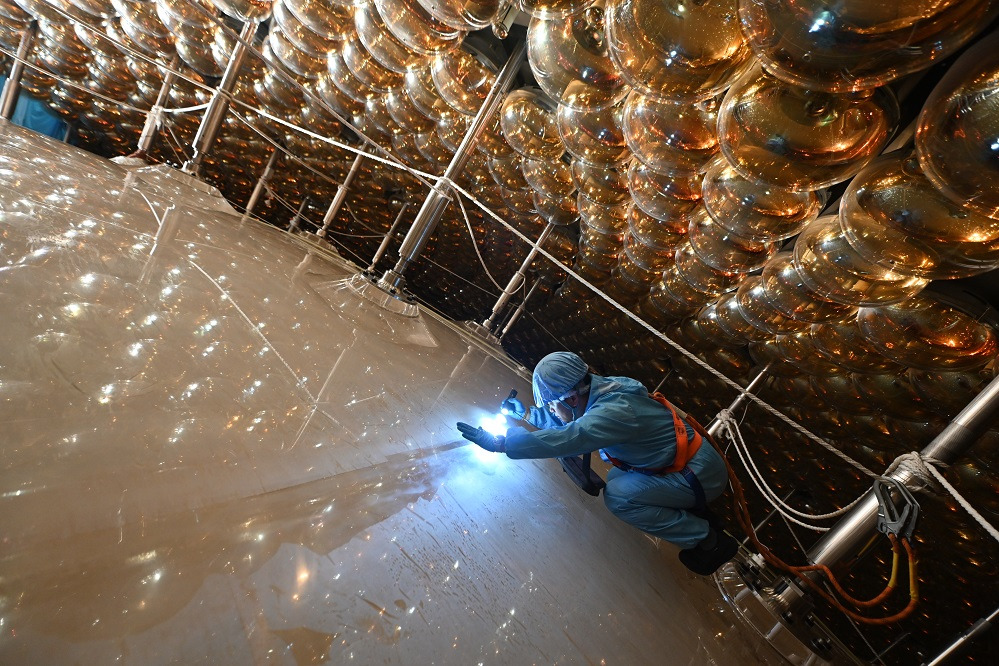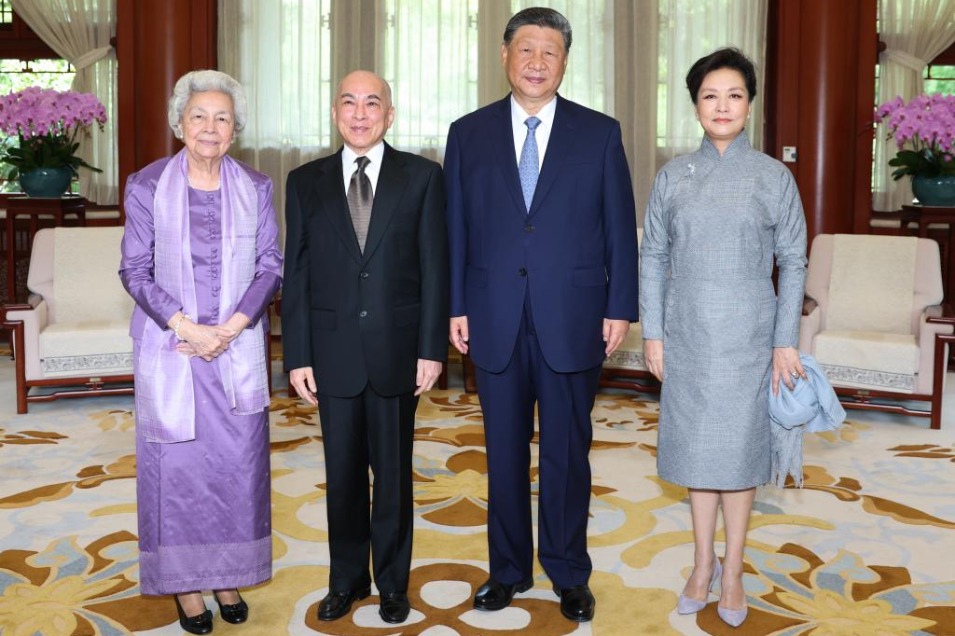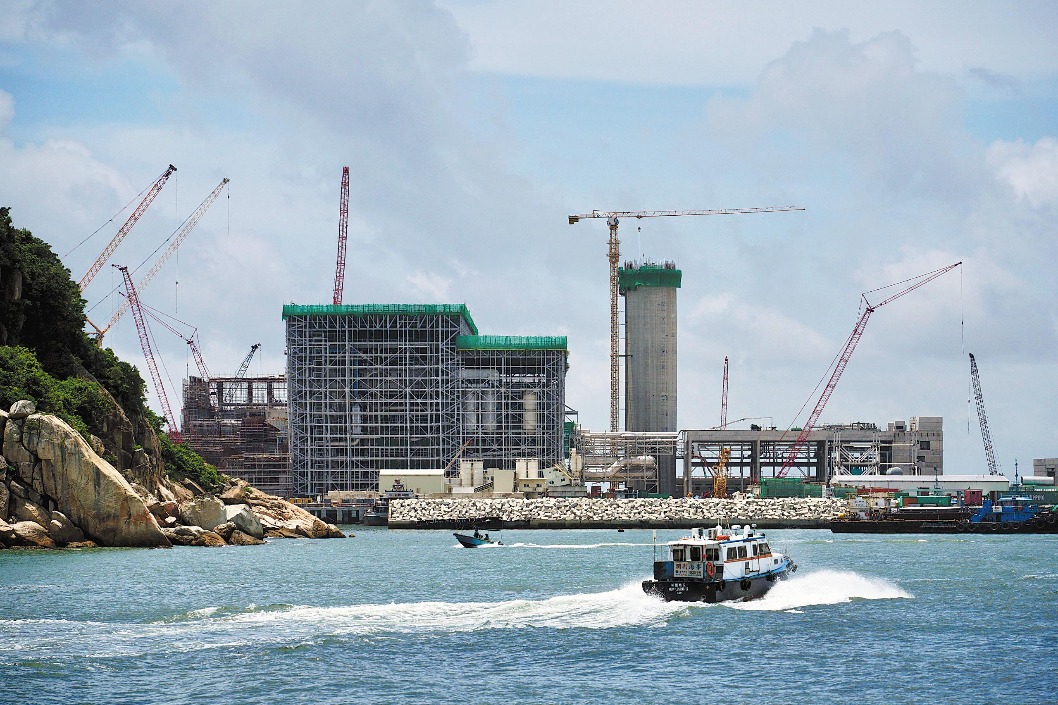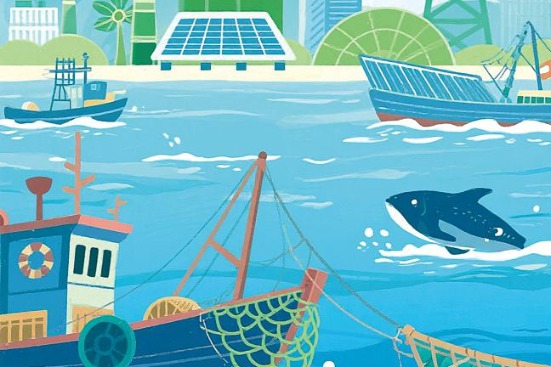China's tech advances Africa's traditional agriculture


In an era of rapid technological advancement, the collaboration between China and Africa in the agricultural sector holds immense promise for both sides and the world at large. Sino-African cooperation in agriculture has been a cornerstone of diplomatic and economic relations for decades, but the integration of cutting-edge technology into this cooperation has the potential to revolutionize agriculture in Africa, advancing modernization and contributing significantly to global food security.
African countries' capability to improve food security is relatively low. In many African countries, people are still engaged in traditional farming rather than mechanized farming. They still use hoes, shovels, traditional plows and manual labor, which inhibits growth in the agricultural sector. When it comes to development, a country can realize rapid industrialization only if it is self-sufficient in food.
Over the years, African countries and their Western partners have entered into a series of partnerships in agriculture without benefiting much from them. In today's world, if a country has been doing the same thing for years without much success in achieving food security, common sense dictates that it change its approach in order to realize that important goal.
With its vast areas of arable land and favorable climate, Africa is poised to become a major player in global food production. However, the continent faces significant challenges, including outdated farming techniques, limited access to modern technology and inadequate infrastructure on the way to acquiring that role.
Thanks to its expertise in agricultural technology and impressive track record of transforming its own agricultural sector, China offers invaluable resources and knowledge to help Africa overcome these challenges. The deepening agricultural ties between China and Africa are based on mutual benefit. For example, by gaining access to advanced technologies and learning modern farming practices from China, Africa can greatly boost agricultural production, which will improve people's livelihoods which in turn will expand the consumer market that China can gain from.
China has gotten the requisite technologies and expertise to help Africa address the perennial problem of feeding itself and realize food self-sufficiency.
The introduction of advanced agricultural technologies would be a game-changer for Africa's agricultural sector. Precision agriculture, which uses GPS and remote sensing to optimize crop production, can significantly increase the yield while reducing the use of water, fertilizers and pesticides. This technology not only boosts productivity but also promotes sustainable farming practices, which are crucial for long-term food security.
In addition, the use of drones and satellite imagery for crop monitoring allows farmers to detect and address issues such as pest infestations and nutrient deficiency in real time. This leads to more efficient use of resources and minimizes crop loss, ensuring that more food reaches the market and thus homes. China's experience in developing and deploying such technologies can be directly applied to Africa. Through joint ventures, technology transfer and training programs, Chinese experts can train and work alongside African farmers to teach the latter how to use those devices and programs, and tailor them to serve the specific needs of different regions on the continent.
Beyond primary production, technology plays a crucial role in strengthening agricultural value chains and easing market access. China's expertise in logistics, storage and processing can help reduce post-harvest losses, and thus solve one of the biggest problems facing Africa. For example, the introduction of cold chain logistics, which involve temperature-controlled storage and transport, can drastically reduce spoilage of perishable goods, ensuring that a higher percentage of produce reaches consumers in optimal condition.
Furthermore, e-commerce platforms and mobile technology can revolutionize market access for African farmers. By establishing a direct connection between farmers and buyers, these platforms can eliminate intermediaries, ensure fair pricing, and open up new markets, both locally and internationally. China's experience with platforms such as JD, Pinduoduo and Alibaba's Taobao can serve as a model for similar initiatives in Africa, in order to empower smallholder farmers monetarily.
The modernization of Africa's agricultural sector through technology-enhanced Sino-African cooperation will have far-reaching implications for global food security. As Africa increases its agricultural output, it can contribute more to stabilizing global food supply, particularly in a world where climate change and population growth are putting increasing pressure on the food system.
Moreover, by adopting sustainable farming practices, Africa can play a pivotal role in reducing the impact of agriculture on the environment, which is essential for the long-term viability of food production. China's commitment to pursuing green development and its experience in balancing economic growth and environmental protection can help guide Africa to build a sustainable agricultural model.
The future of Sino-African cooperation in agriculture is bright, with technology serving as the driving force behind the modernization of Africa's agricultural sector. By leveraging China's technological expertise and Africa's vast agricultural potential, this partnership will not only transform agriculture in Africa but also greatly contribute to global food security. With the world facing unprecedented challenges, Sino-African collaboration in agriculture offers a beacon of hope, demonstrating how international cooperation and technological innovation can create a more secure and sustainable future for all.
The author is director of the China Africa Institute at the University of Makeni, Sierra Leone.
The views don't necessarily reflect those China Daily.
If you have a specific expertise, or would like to share your thought about our stories, then send us your writings at opinion@chinadaily.com.cn, and comment@chinadaily.com.cn.

































